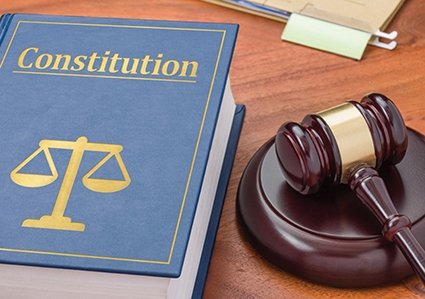Opposition Accepts GD Proposal to Start Dialogue on Constitution
The majority of qualified opposition parties have accepted the proposal of the ruling Georgian Dream (GD) party to start a dialogue on the controversial constitution changes.
However, the opposition parties say that the ruling team should take into account their main demands, which were rejected by the GD before: to move to a fully proportional election system in 2020, to proportionally distribute mandates and to maintain the direct rule of Presidential elections.
Eight qualified opposition parties released a letter on Wednesday citing their list of main demands from GD.
The opposition parties say they are ready to restart discussions over the election threshold and election blocks, but underline that they will not change their position regarding the proportional election system and the rule of Presidential elections.
“By 2020, the majoritarian election system has to be substituted by a proportional one. We should also agree on a direct election system for the president,” said Irakli Abesadze from the parliamentary minority European Georgia.
The United National Movement (UNM) also agreed to take part in the dialogue, having the same demands as the other political parties.
“The main problem is that GD should keep in mind that consensus does not mean only agreeing on some issues within the party, but making an agreement with the other political parties as well,” Tinatin Bokuchava, a UNM MP, said.
Former Chairperson of Parliament and leader of the Democratic Movement, Nino Burjanadze, believes the offer of the majority to start a dialogue is not necessary and the government is trying to mislead society.
“The offer of the ruling party is not serious. GD understands that they are in a very awkward position but do not want to compromise… Our only requirement is to conduct elections in a democratic and fair manner,” she added.
The meeting between the GD majority and qualified opposition parties is scheduled for Friday at 17:00 in the old building of parliament.
The dialogue between the majority and opposition over constitution amendments became necessary after the Venice Commission expressed readiness to organize a meeting in Strasburg on September 6, in order to facilitate dialogue between the Georgian ruling party and the opposition.
GD adopted the proposed changes to the country’s main law, the Constitution, with its second reading in late June.
Parliament will return to discuss the draft law after three months, as three readings are mandatory for the final adoption of a law in Parliament.
The amendments, among many important changes, include a delay to the full move to a proportional election system, as well as indirect presidential elections in 2018.
GD promised a move to a proportional system prior to the 2016 parliamentary elections. This year, following consultations with the opposition parties, NGOs and the Venice Commission, they stated that the changes would take place before the 2020 parliamentary elections. However, according to the adopted changes, this will now happen no earlier than 2024.
Georgia has a mixed electoral system, with 77 lawmakers elected through proportional elections and the remaining 73 via a majoritarian race.
Thea Morrison












